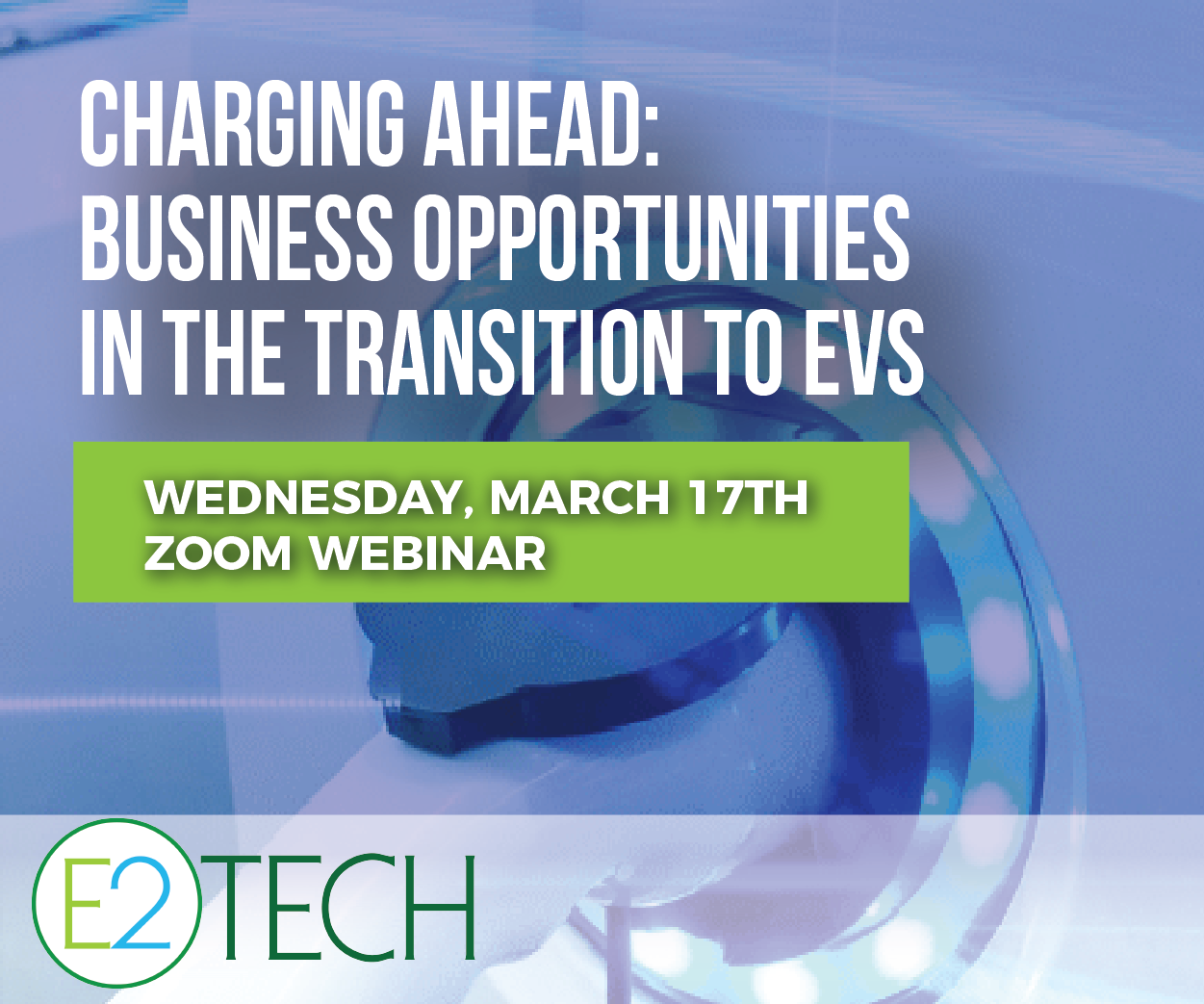News
International Electric Vehicle Forum Explores Benefits of EV Technology and Growing Business Opportunities in Maine and Quebec

Augusta, Maine – March 17, 2021 – An international panel of electric vehicle (EV) proponents said today that Maine business owners are well positioned to take advantage of the transition to EVs in Maine and across the border in Quebec.
During a virtual forum hosted on March 17 by E2Tech (Environmental & Energy Technology Council of Maine), a panel of companies shared their perspectives on the growing business opportunities related to the region’s shift to EVs.
The panel featured Marie-Claude Francoeur, Québec’s Delegate to New England, as well as business leaders on both sides of the border, including Hannaford Supermarkets, which has elected to host EV charging stations at many of its Maine stores; FLO, a Quebec company that has built an EV charging network across Canada and the U.S; ReVision Energy, an active developer and installer of EV charging stations in Maine; and Couche-Tard, the multinational operator of Circle K convenience stores that is hosting EV charging stations at its locations around the world. The panelists joined representatives from Efficiency Maine and the Province of Quebec who reviewed the policies and programs that are accelerating the transition to EVs. E2Tech is Maine’s leading energy, environmental, and clean technology business and economic development organization.
Panelists from Quebec described their experience participating in that market’s rapid expansion of EVs. The Province of Quebec boasts the second highest rate of EV adoption in North America (after California) and has among the highest rates of EV drivership in the world.
“Québec is committed to the fight against climate change and we welcome discussions with our friends in Maine about how we can work together to reduce carbon emissions from cars,” said Marie-Claude Francoeur, Quebec Delegate to New England. “By sharing best practices about business strategies and programs for promoting EVs, these discussions will make it easier, faster, and safer for EV drivers on both sides of the border to make trips for vacation or business.”
Many Maine businesses, including Hannaford Supermarkets, are finding ways to benefit from the transition to EVs by attracting retail shoppers with EV infrastructure.
“Having EV charging stations at our stores is another way that we share this journey of sustainable living with our customers,” said George Parmenter, brand lead of health and sustainability for Hannaford Supermarkets. “We appreciate that so many are looking for convenient places and ways to be healthier and responsible for the world around us.”
The forum also highlighted Maine’s progress in developing a network of public chargers and establishing new programs to promote greater use of plug-in cars. To that end, Efficiency Maine has been working since October 2018 to minimize the obstacles of electric vehicle adoption by offering grants that support the installation of a network of EV chargers throughout the state and defray the cost of an EV. Efficiency Maine has helped fund 150 new, public plugs in Maine’s public EV charging network which has now grown to a total of 114 DC high-speed charging plugs and 375 Level 2 “community” plugs.
“I’m excited to see Maine’s businesses take advantage of EV opportunities,” said Michael Stoddard, executive director of the Efficiency Maine Trust. “When every third or fourth car on the road is an EV, a commercial property owner must ask if they will be ready to serve all these EV drivers, will local shoppers and tourists choose their store, and will employees or fleet drivers have a place to charge up?”
France Lampron, director of Transportation Electrification at Hydro-Québec, agreed, saying: “One of the keys to success in ensuring the transition to transportation electrification is to develop a reliable public network of charging stations to support an increasing number of electric vehicles.”
Panel discussion included advances in technology — from vehicles to chargers – that are making driving EVs more accessible and convenient, as well as the status of the transition in Maine and the region.
“We believe that Maine businesses shouldn’t underestimate the opportunities arising from society’s rapid movement toward electrification in the transportation sector; not only in terms of the charging infrastructure investment but also in harnessing its benefits to the electric grid,” said Barry Woods, director of Electric Vehicle Innovation at ReVision Energy in South Portland, Maine.
Many of the state’s auto dealers participate in Efficiency Maine’s EV Rebate program, which allows participating dealers to offer instant rebates of $1,000 to $2,000 on eligible EVs.
“Efficiency Maine’s incentive programs have created a lot of awareness and demand for consumers and businesses shopping for an EV,” said Tim Seymour, commercial sales manager at Darling’s Auto Group in Bangor, Maine. “With all the new EV models rolling out, buyers will have more choices whether their goal is cost savings, environmental concerns, or driving the latest technology. Plus, they’re lots of fun to drive!”
Maine’s Climate Action Plan, which was issued by the Maine Climate Council on December 1, 2020, has put the state on a trajectory to decrease greenhouse gas emissions by 45% by 2030 and 80% by 2050, and to achieve carbon neutrality by 2045. Among its goals to accelerate Maine’s transition to EVs is putting more than 200,000 EVs on the road by 2030.
For more information and to purchase access to the E2Tech EV webinar, go to this link: https://e2tech.org/event-4220612
Media contact:
Kate Rankin
Senior Communications Manager
Efficiency Maine
207 512-5905
Kate.rankin@efficiencymaine.com
All News
